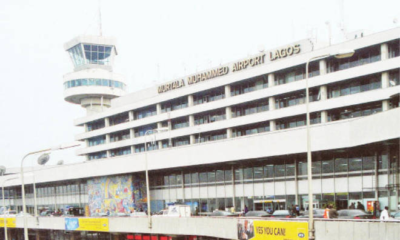News
5 Questions About Aliko Dangote’s Oil Refinery That Still Need Answers

The Dangote Oil Refinery is poised to become the world’s largest single-train refinery, a feat that would be a major achievement for Africa. The refinery is being built by the Dangote Group, a respected and diversified business conglomerate in Africa, and is being spearheaded by Aliko Dangote, the wealthiest individual on the continent. CONTINUE FULL READING>>>
Located in Lagos, Nigeria’s Lekki Free Zone, is a $19 billion project set to refine 650,000 barrels of crude oil daily. While the refinery is set to begin operation in a few weeks, let’s take a look at some questions which have been left lying on the faces of Nigerians.
The refinery as a private sector monopoly
With the Nigerian National Petroleum Corporation Limited (NNPCL) dominating the downstream sector of the petroleum industry since post-independence and Dangote’s entry disrupting the existing monopoly, leaving lingering concerns. CONTINUE FULL READING>>>
Are we merely replacing a government monopoly with a private sector monopoly, as many stakeholders worry about the implications of Dangote’s refinery? Given the weak enforcement of consumer regulations, stakeholders have raised concerns about the potential for fuel prices to continuously increase, much like the rising cost of cement.
Content of contact agreement between the government and Dangote refinery
The content of the contract agreement between the government and Dangote Refinery becomes even more significant as one of the questions left unanswered surrounding the project. Stakeholders have expressed concerns about the potential monopoly held by the refinery, as well as the pricing of fuel and its impact on consumers.
Within the agreement, it is crucial to know if there are structures around transparency and fairness. Also, are there regulatory measures established to prevent any monopolistic practices and enforcement of consumer protection regulations? This includes closely monitoring the pricing of fuel to prevent an uncontrolled rise, similar to the increasing cost of cement.
The refinery effect on NNPCL refinery and others
Despite Nigeria’s ongoing efforts to revamp its refineries with an estimated cost of $3 billion, concerns have been raised regarding their potential obsolescence and the challenges in finding buyers. Questions remain regarding the readiness of the refinery to meet product supply requirements, as well as the impact of subsidies on petrol, logistics, market linkages, and other pertinent areas.
Also, what happens to the nation’s four (4) refineries which have incurred significant expenditures in Turnaround Maintenance (TAM), staff remuneration, and other expenses. It is essential to address these uncertainties and seek clarity, as the existing refineries may become increasingly obsolete and pose difficulties in finding interested parties for their sale.
The refinery storage and distribution method
It’s no news that Nigeria and other African countries still face significant hurdles in tackling the storage and distribution challenges prevalent across the continent. The African Refiners and Distributors Association (ARDA) said over 48 of the 54 countries in Africa lack pipeline networks to transport crude oil and fuels.
Despite the implementation of the African Continental Free Trade Area (AfCFTA), a lingering concern arises regarding how Dangote Refinery plans to handle the export of 40 percent of its output. This concern is amplified by the persisting issue of tankers damaging road networks in Nigeria, coupled with the inactivity of NNPC’s product pipelines. The unanswered question revolves around how Dangote Refinery will navigate these challenges and ensure smooth and efficient export operations amidst existing infrastructural limitations.
The refinery environmental concerns
In considering the construction and operation of large-scale oil refineries, the concerns revolve around the potential environmental impact of the Dangote Oil Refinery. Although specific details regarding its environmental implications are currently unavailable, it is crucial for projects of this magnitude to adhere to environmental regulations and embrace sustainable practices. CONTINUE FULL READING>>>
How has Dangote Refinery adopted measures to mitigate any potential adverse effects on the environment and aligns with sustainable standards throughout its operation?














